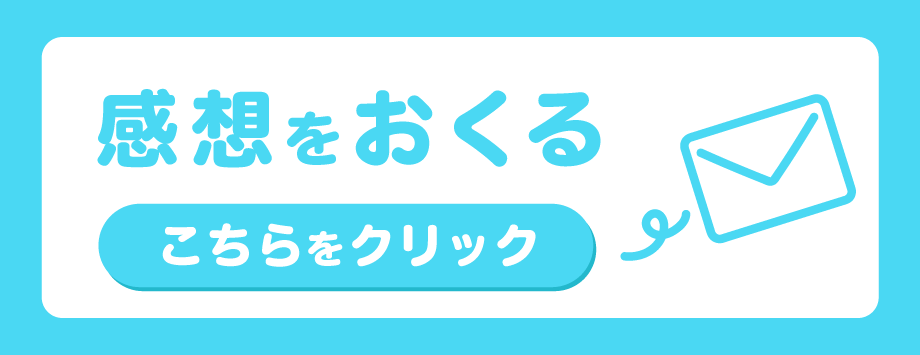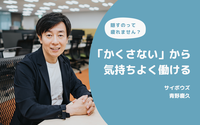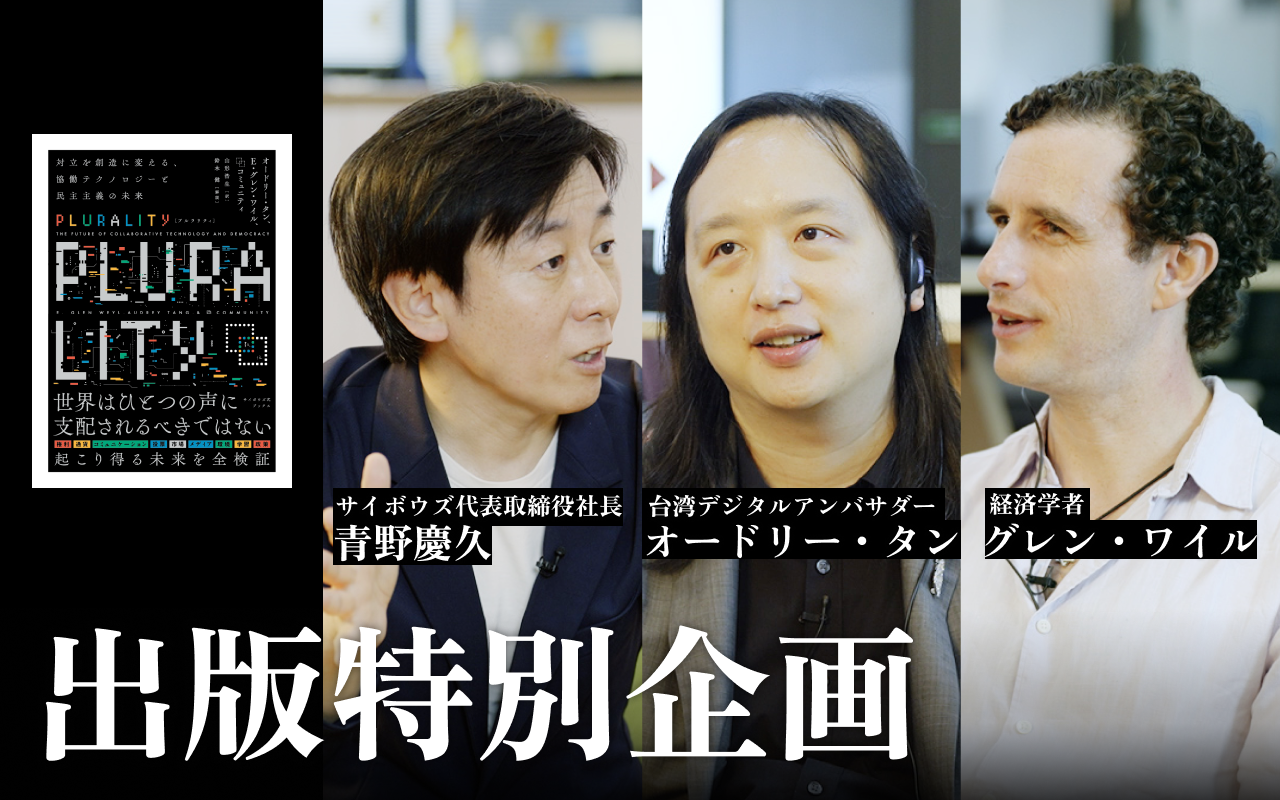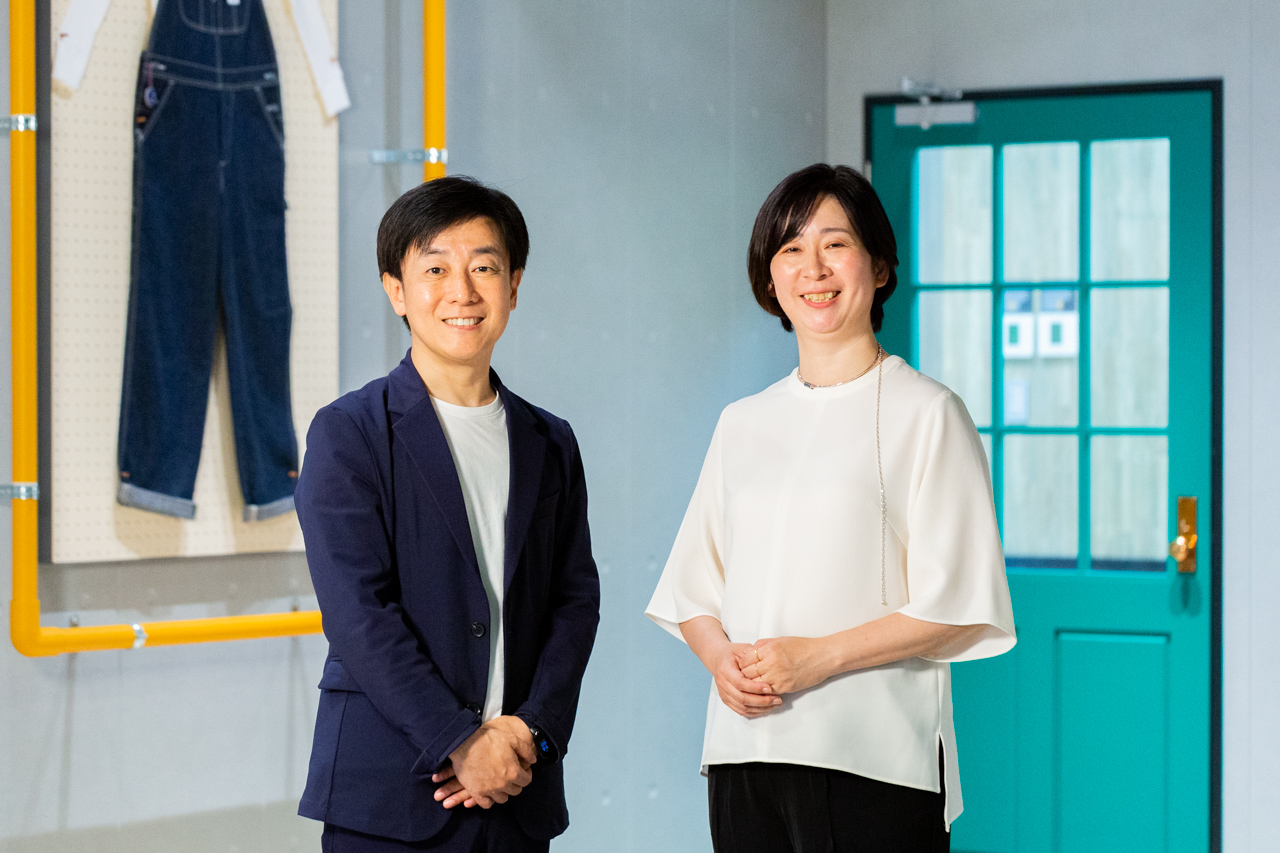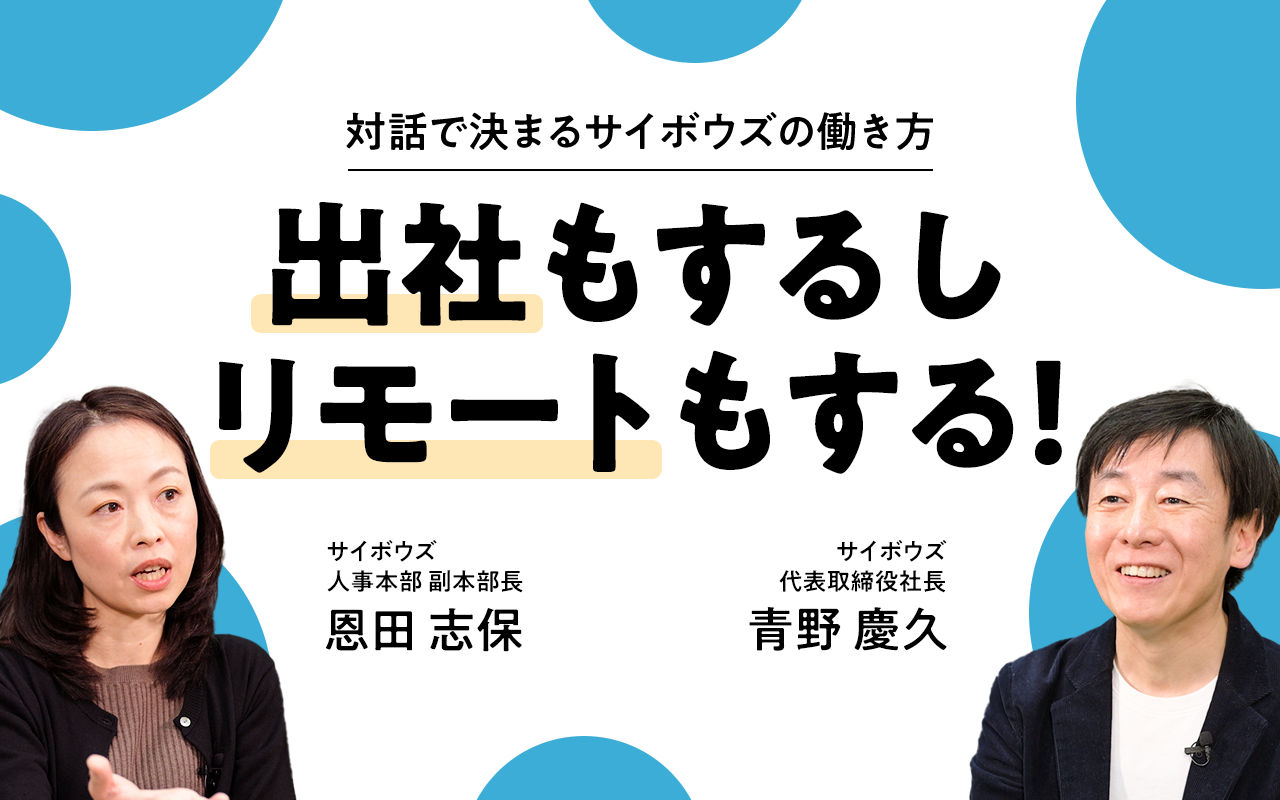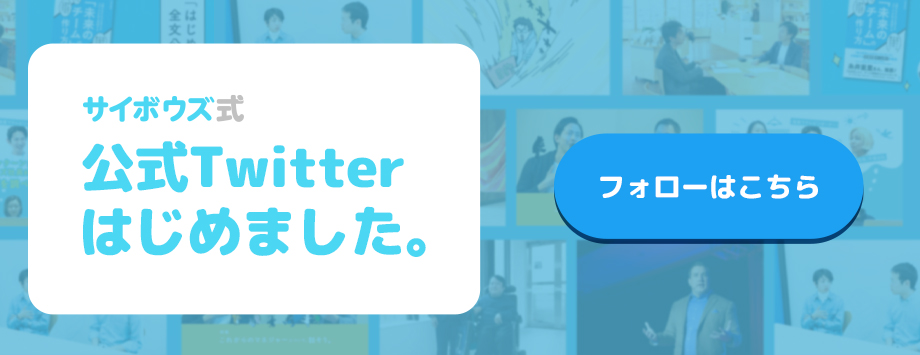No Need to Hide: The Benefits of an Open Business Culture
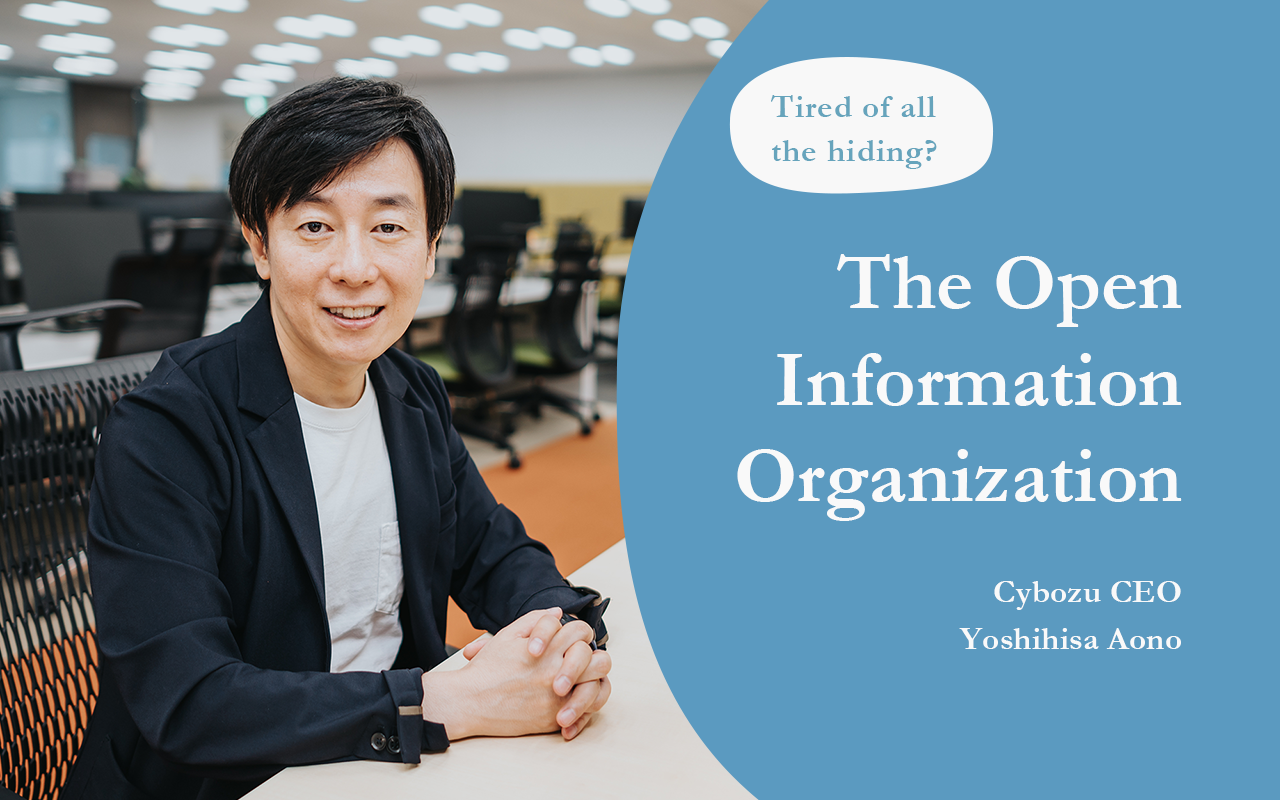
Tired of all the hiding?
This is the message that appeared in bold print on June 29 in Japan's leading financial newspaper, The Nikkei. It highlights an inescapable truth of modern business culture: The age of open information sharing is upon us.
With the speed at which change happens in the digital era, companies can't remain competitive unless employees are given the optimal conditions to do their jobs. When power-hungry hierarchical structures get in the way, the whole company loses precious time and resources.
Open information cultures have their own challenges—it's not enough to say, "Let's open it all up!" and see what happens. To learn about the importance of information sharing and how to transition toward a more open culture, we spoke to information-sharing advocate and CEO of Japan's leading groupware development firm Cybozu, Yoshihisa Aono.
Openness is worth a try


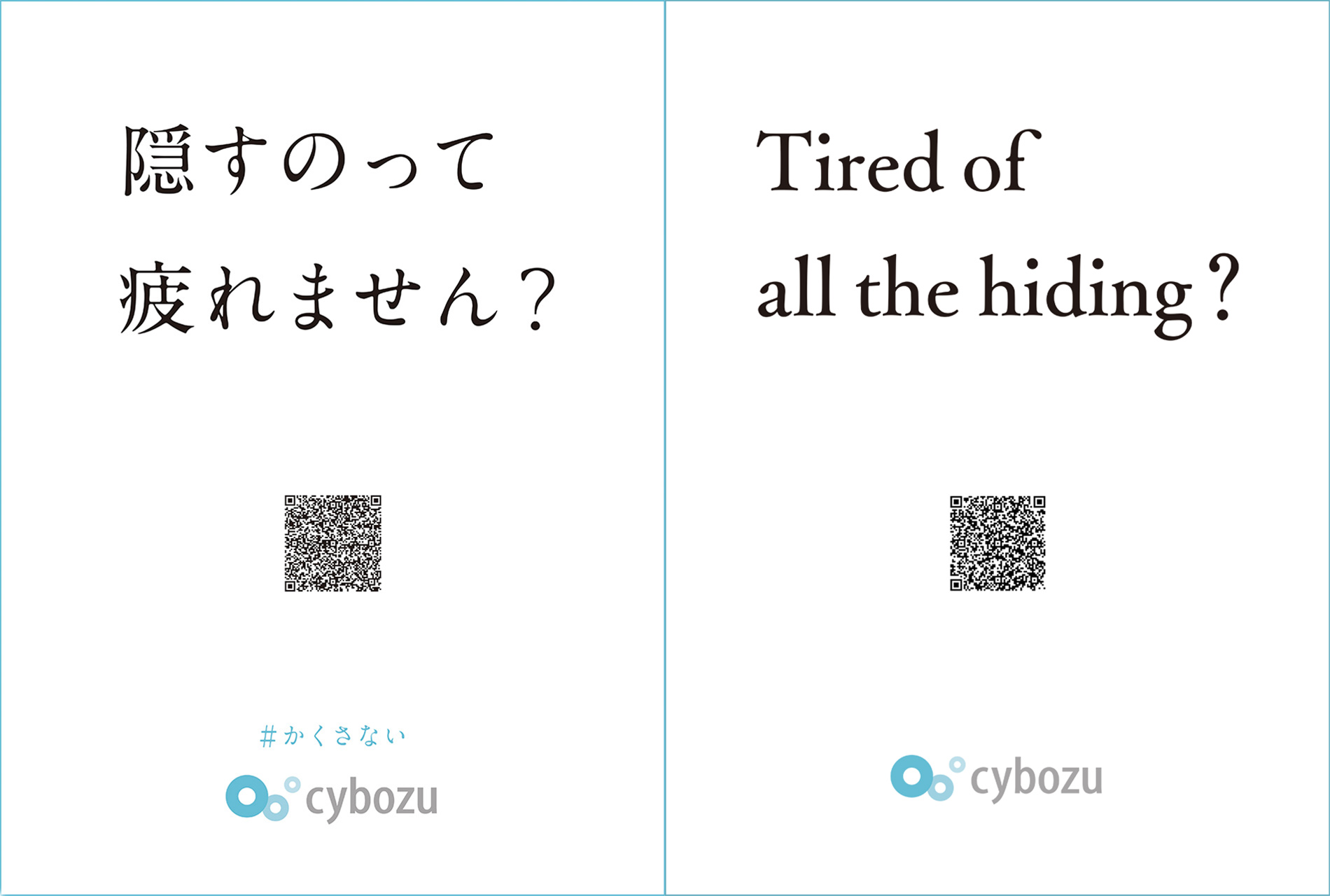
On June 29, 2021, the "Tired of all the hiding?" campaign appeared in Japanese in leading newspaper The Nikkei. The English version on the right is a translation.


I suggest we shift toward a more open structure without an information gap, in which most information is openly shared throughout the company. That's where I believe we as a society are headed.
Choosing not to hide information isn't that difficult. Anybody can do it. It's the current attitude within many companies of always wanting to hide that's exhausting.

Yoshihisa Aono is the CEO of Cybozu. After graduating from Osaka University, he joined Matsushita Denkou (currently Panasonic). In August 1997 he co-founded Cybozu, and in April 2005 he was appointed CEO. Yoshihisa spearheaded the company's workstyle reform, as well as its transition toward its cloud-based product Kintone in 2011. He is the author of several books on teamwork and happiness at work.


It's not like most people are hiding things on purpose. We've just gotten so used to concealing information that we don't even realize we're doing it anymore.


We believe that if organizations adopt a more open model, their productivity will go up. It's at least worth discussing within your team. The information-sharing tools you need to support an open culture have come a long way—they're cheaper and easier to use than ever. There's a real opportunity here.
Doing away with internal rivalries


Before founding Cybozu, I worked for a large Japanese company. We had a research and development division, a business operations unit, a sales division, and so on. Between them, there was an information wall. For example, a rule we had was to never disclose the manufacturing costs to the sales team. We were told that if the sales team knew the costs, they could go out and sell our products at a discounted price, so we were not allowed to disclose that information.
Even though we were supposed to be on the same team, we ended up having to come up with strategies against one another. It just didn't make sense.
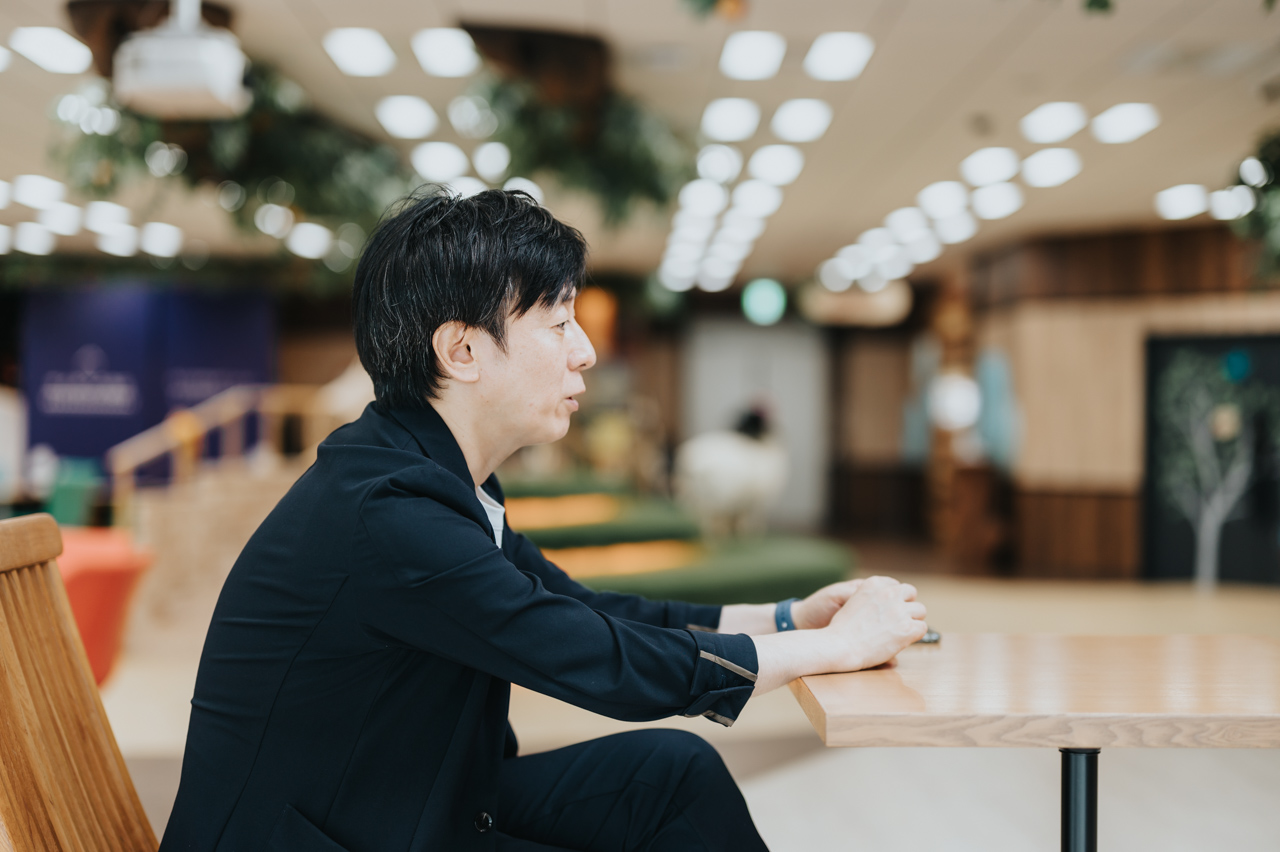


We could eliminate a great deal of mental exhaustion by doing away with such rivalries. We would be much better served by instead adopting a mindset of, "Let's work as efficiently as we can, get our work done and go home."
Then there's the added issue of people who get annoyed when communication doesn't go through them. They're the kind of people who get upset and yell, "I didn't hear about this!" or "This should have gone through me first!" How is that way of thinking helping anyone?


In structures where some stakeholders wield authority over others, all information has to flow through the top of the organization. That causes bottlenecks which become a huge liability for companies with such hierarchical models.
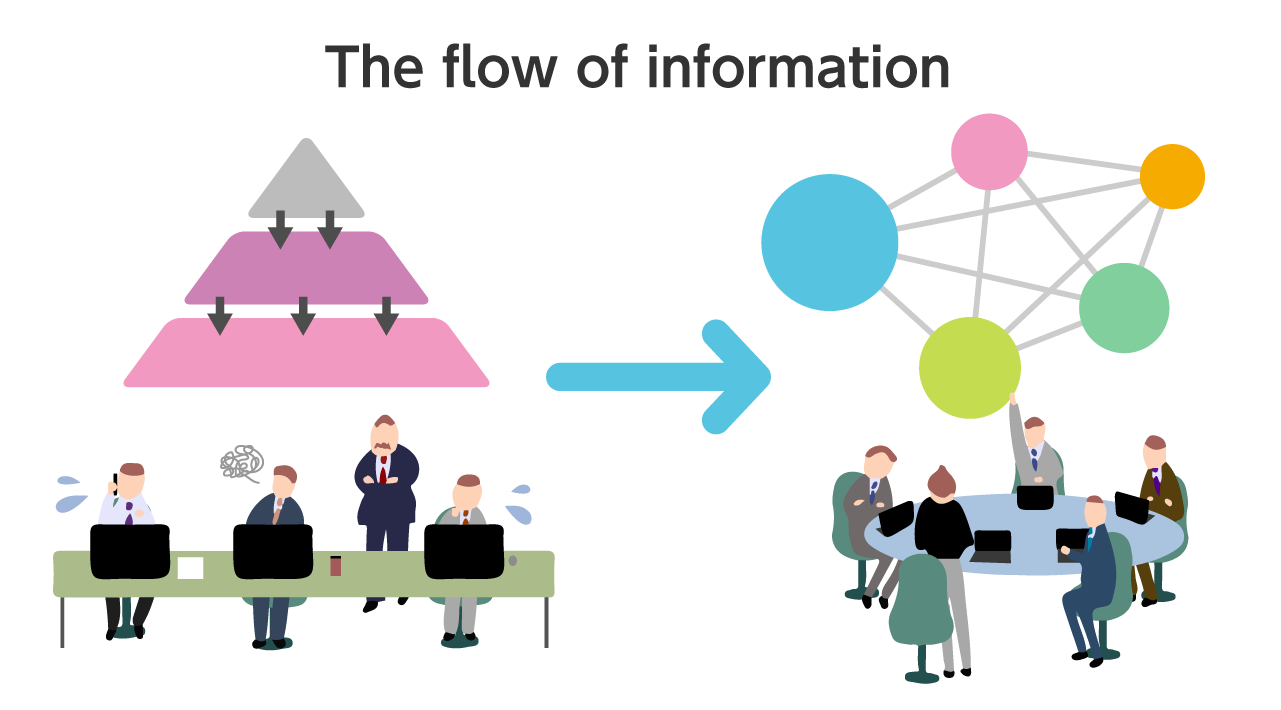
Disarming information hoarders



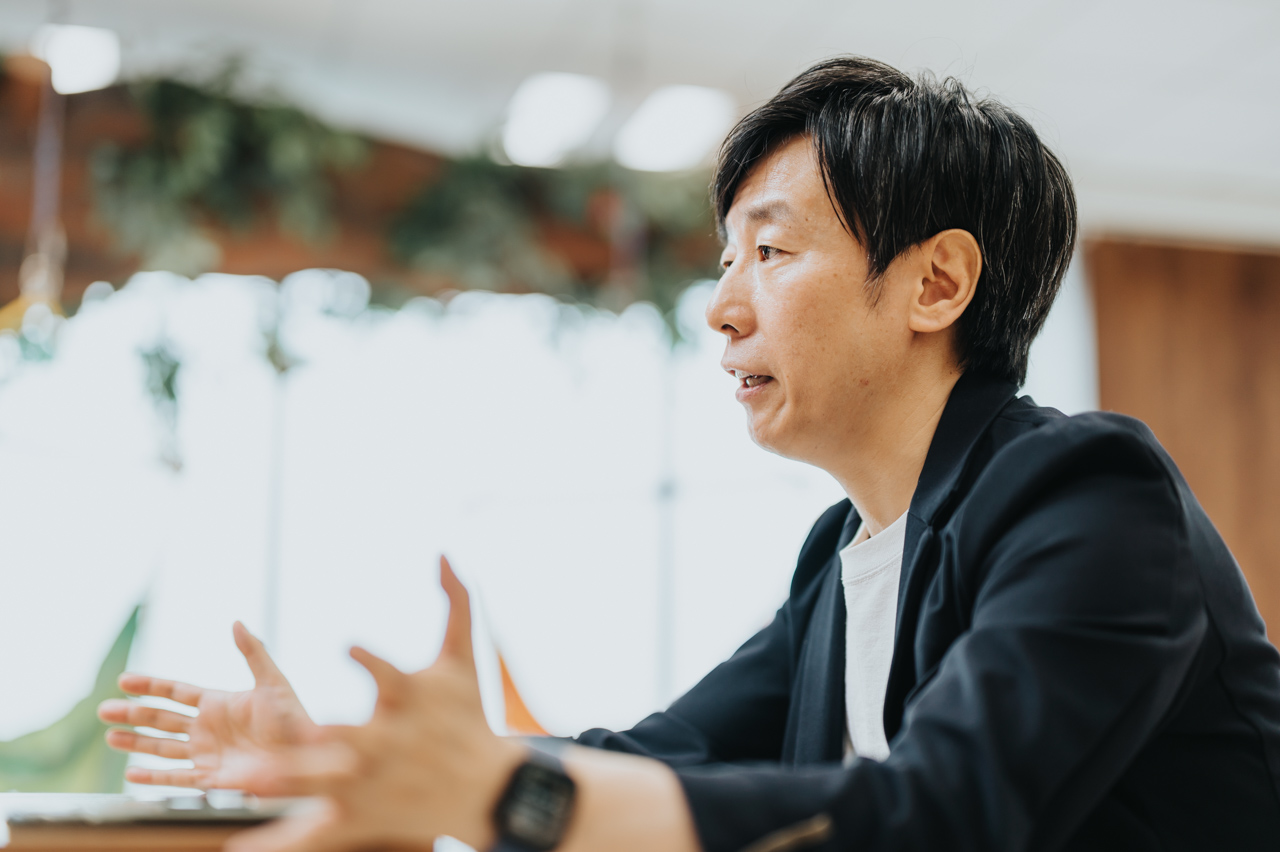

In other words, those who brandish their authority as a weapon find themselves unarmed. It's a complicated issue that takes courage to address, but that you have to deal with if you plan on moving toward an information-sharing company culture.


It's surprisingly difficult to achieve an organizational structure where there is no information gap.
Company-wide processes


Of course, there are still approval and decision-making processes in place within each department. Yet everything from my daily schedule, to the travel costs of individual managers, all the way to the debates and discussions around our 10-year company-wide strategic plan are open to all stakeholders.




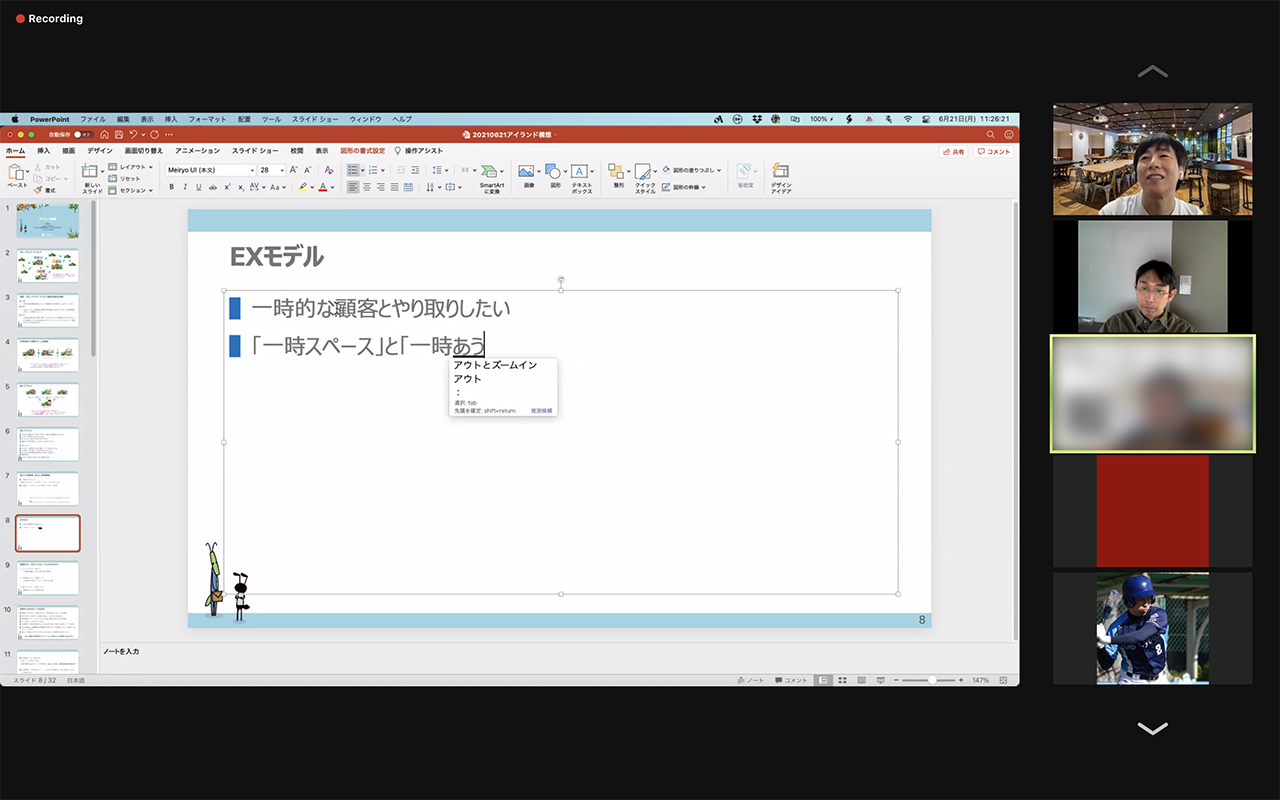
Aono listens to employees' requests in real time while drafting a long-term strategic document.

Also, I felt a responsibility to hand down my way of thinking. It would be problematic if when I no longer head the company, there's nobody around who can write a strategic document. Now we have employees who can observe and learn from my thought process, and later reproduce it themselves.
Adopting this approach also opens the door for other people to contribute to our strategy. If I try to think of strategic targets myself, I can come up with maybe three per year. If there are 10 of us who understand the process, we can come up with 30.

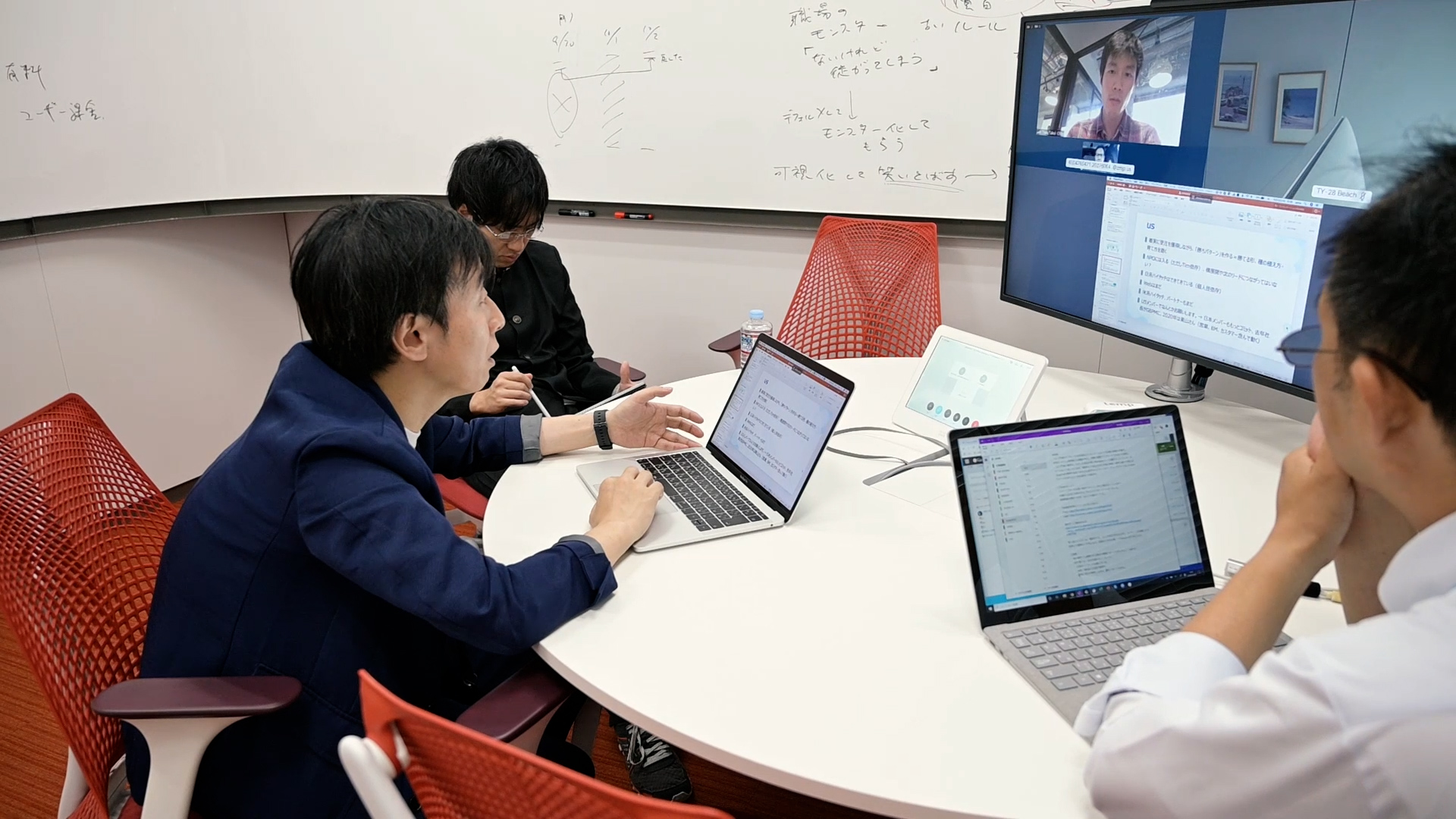
"When I was mostly working from the office, I used to discuss long-term strategies with people from various departments using a large whiteboard in a conference room. These days, the process is completely online. That means my analog skills of writing strategies while talking in front of the whiteboard, which I'd gotten really good at, aren't useful anymore! (laugh)" - Aono
Good communication requires emotion




That's something I myself failed to realize in the past.


Then I shared my strategy, and the reaction I got was, "OK, so what?"
I was shocked! The documents I'd made weren't resonating with anyone. So I decided that without any shame, I was going to share my feelings. I told everyone, "Frankly, I'm frustrated. This year, I want us to win."
When I did that, the response I got was, "That's what we wanted to hear from you!" I was shocked again. What resonated with people wasn't my very logical strategic presentation, but my heartfelt sense of frustration.


Sharing information together with feelings is perhaps the best way to reach your audience. Even when writing an email or a daily report, it could be a good idea to include a couple of words about how you're feeling.
You can mess up, just don't lie
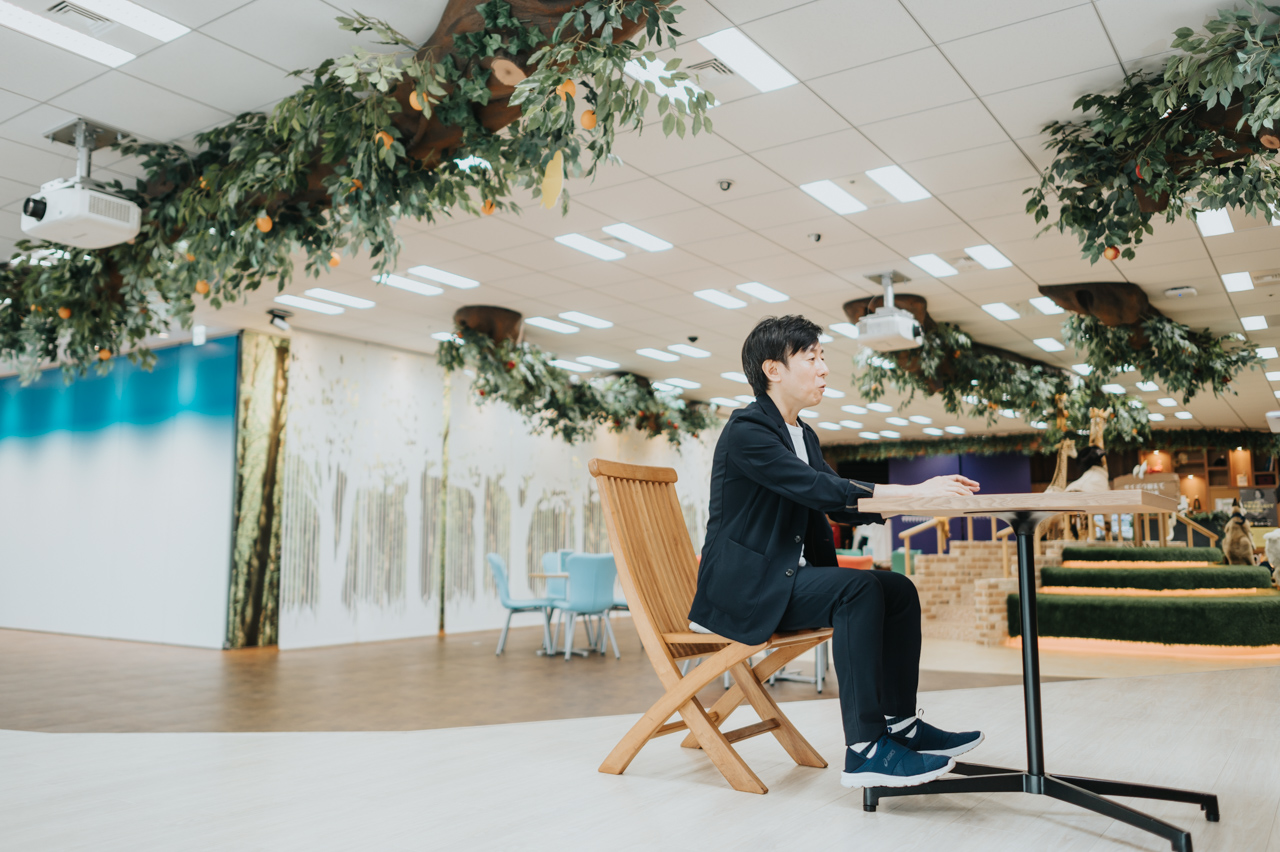



When a problem occurs, koumeiseidai is what will determine if people can openly share the reasons for what happened or not.
What's important isn't to openly share all information. It's when you can't share information, you explain to everyone, "Here's the limit to what I can share, and this is why."


The reason people lie and hide things is because they don't want to face potential consequences. Sometimes when you're honest with someone, they may get mad at you. You don't want that, so you lie.
That's why I add "you can mess up." To remind everyone that we're all human; everyone makes mistakes. It's important for teams and organizations to acknowledge small mistakes and failures. Otherwise there's no way we'll be able to realize true open information sharing.


Sharing with empathy






It's really hard, but that's how you build an environment in which people have psychological safety. If you have people vociferously arguing with each other, everyone ends up exhausted. I want to create a culture in which people can at least speak and listen to one another normally.


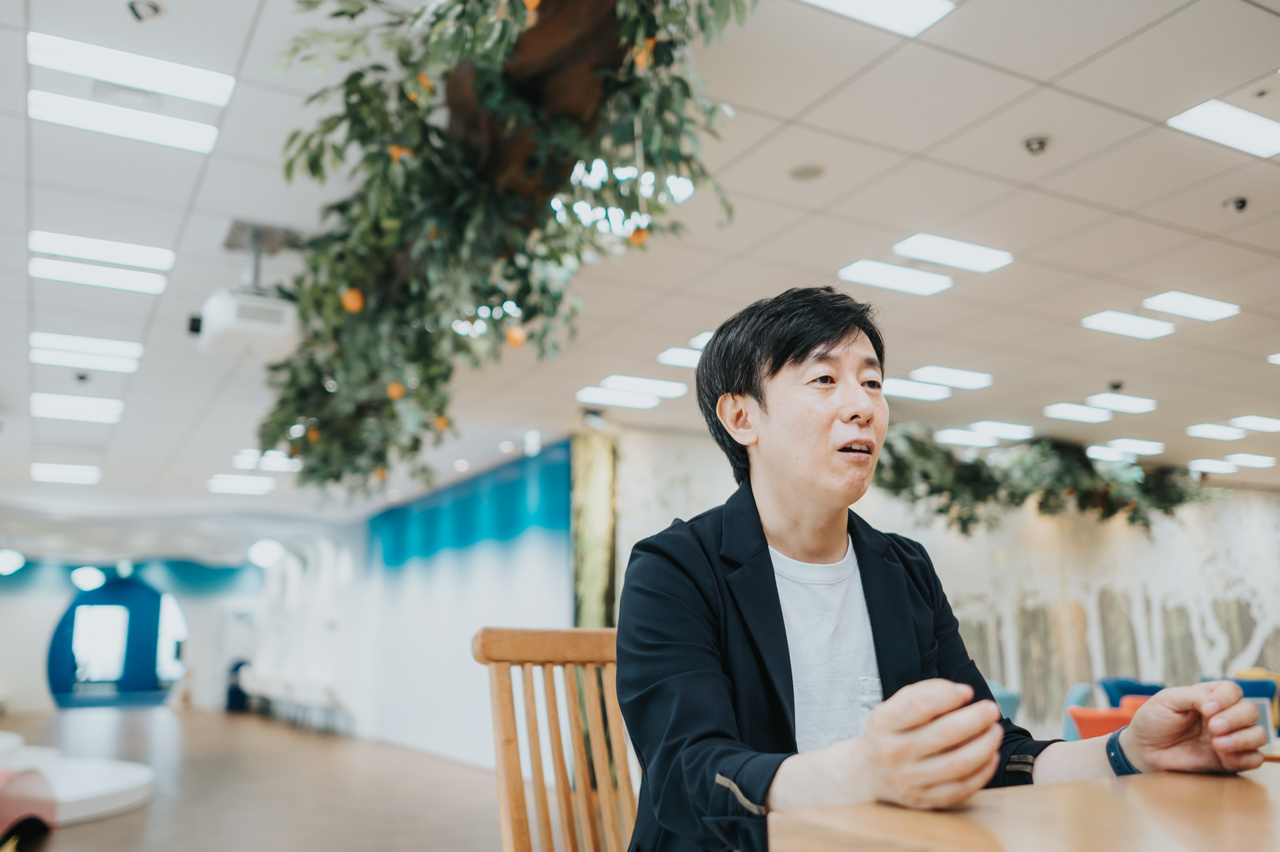
"I get asked a lot, 'How do I get as good at making presentations as you are?' The first thing is to know your audience, otherwise you're not going to know the direction in which to take your presentation. You see plenty of presentations where the speaker is very eloquent, but still leaves the entire audience behind. (laugh)" - Aono
Bridging the information gap


At the same time, it's important to share our knowhow with the rest of society. By simultaneously getting things moving internally and externally, we can slowly transition toward a society without an information gap.
I'm curious how things will be 10 or 20 years from now. I feel like the efforts we're making to realize our vision today could wind up having a broad positive impact for everyone.


I don't want to give up. We've done this in past ad campaigns as well—by first sharing what we've been able to accomplish internally, we hope to sow the seeds of change in other organizations. The idea of an open information culture will take root and one by one, we'll see other companies give change a chance.
It doesn't matter how much time it takes. As long as we are determined to not hide information, we can end up bridging the information gap.

"Within the advertisement, there's the hashtag #かくさない (kakusanai) meaning 'don't hide.' We encourage people who have experienced problems due to the information gap, or who have been forced to waste time on pointless tasks because information wasn't properly shared within their company, to recount their experiences using the hashtag. By seeing what others have experienced with #かくさない, we hope to take the first steps toward building a better society." - Aono
Article by the Cybozu editorial team. Translated by Alex Steullet. Edited be Ade Lee, Mina Samejima and Meg Shimoji. Pictures and graphics by Dan Takahashi. The original Japanese article is available at the link below.
SNSシェア
